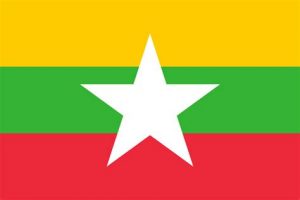On September 15, 2016, President Obama announced that U.S. economic sanctions on Myanmar (also known as Burma) would end, but the announcement left many questions as to what would change and what sanctions might remain. On October 7, the Obama Administration provided the answer with an Executive Order that completely removed the Burmese Sanctions Regulations, lifted the U.S. import ban on rubies and jadeites, made the public reporting requirements for investment voluntary, and lifted the bans on visas for certain sanctioned individuals and most sanctions listings of Burmese Specially Designated Nationals (SDNs).
The United States had been removing sanctions in steps since July 2012 as the Myanmar government moved down a path of reform. However, a patchwork of remaining sanctions and a broad set of sanctions listings continued to make business, investment, banking and trade with Myanmar challenging for U.S. as well as non-U.S. companies. Here are four key impacts of the U.S. policy change and four important issues that remain.
How does this removal of sanctions impact business in/with Myanmar?
1. The sanctions list is nearly gone (see below for what remains). Importantly, this includes removals of (a) the major Myanmar economic conglomerates, businesses and banks; (b) military/economic entities; and (c) the remaining key businessmen, industrialists and military-related figures.
2. Treasury’s Financial Crimes Enforcement Network (FinCEN) provided “exceptive relief” to the Special Measures imposed for anti-money laundering (AML) purposes under Section 311 of the USA PATRIOT Act. As a consequence, U.S. financial institutions continue to be authorized to provide correspondent banking services to Myanmar banks. Previously, U.S. financial institutions were permitted to provide correspondent services involving Myanmar transactions for non-SDN banks, although in practice U.S. banks have shied away.
3. The ban on imports to the United States of Myanmar rubies and jadeites, as well as jewelry containing the same, has been completely removed.
4. The State Department’s Responsible Investment Reporting Requirements for new investment over $5,000,000 (previously $500,000) has been removed, but reports can still be made on a voluntary basis.
What issues still remain for persons doing business in or related to Myanmar?
A. Over thirty Burmese SDNs continue to be listed under drug trafficking and North Korea sanctions programs. This includes Yangon Air and several gem, mining, textile, agricultural and constructions companies. Thus, although business in Myanmar will be far less burdensome, some sanctioned-party risk remains.
B. Myanmar banks will need to continue to integrate with the global financial system and establish U.S. correspondent banking relationships to allow dollar transactions. Myanmar’s government and financial system also will have to make continued progress to address FinCEN’s AML concerns. Whether the current FinCEN exception or Myanmar’s continuing reforms will be sufficient to encourage U.S. banks to expand their banking relationships with Myanmar remains to be seen.
C. The U.S. embargo on exports to Myanmar of defense articles and defense services remains in place.
D. Although all property and interests in property blocked under the Burmese Sanctions Regulations are now unblocked, the U.S. government made clear that past violations of U.S. sanctions are still subject to enforcement, including action against U.S. and non-U.S. persons who may have “jumped the gun” by conducting business prior to sanctions removal.
The lifting of sanctions for Myanmar marks a watershed in the unwinding of U.S. sanctions. Now, the U.S. and Myanmar governments will observe how the private sector reacts as Myanmar rebuilds and rejoins the international economy.
 Global Trade & Sanctions Law
Global Trade & Sanctions Law


